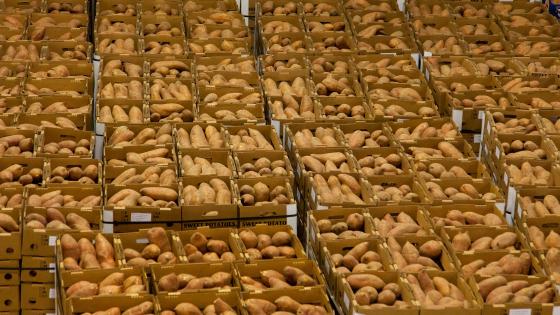
Grower Cooperatives (Co-ops)
Grower Co-ops
In the early 2000s, as many as four grower co-ops in Kentucky were actively marketing tomatoes, melons, sweet corn, cabbage, bell peppers, pumpkins and other crops to wholesale buyers. By 2006, however, produce marketing by grower co-ops had largely disappeared from Kentucky’s produce industry, with only one co-op still operating as growers found other ways to market produce. The involvement of co-ops in marketing produce from Kentucky has since been limited. Cooperatives remain a potential form of business organization for specialty crop growers located in a similar geographic area. Producers interested in exploring the cooperative business structure can investigate resources available from the Kentucky Center for Agriculture and Rural Development (KCARD), which is recognized by USDA Rural Development as a cooperative development center.
Key Requirements
| Marketing Time Required | Medium |
| Required Product Volume | Medium |
| Potential Sales Volume | Medium |
| Price Per Item | Medium |
| Difficulty of getting into this market | Medium |
| Importance of Product Quality & Shelf-Life | High |
How do I get started in Grower Cooperatives?
The success of new cooperative ventures will depend heavily on careful study of the activities pursued prior to making major investments into operations and facilities. Before an actual business plan is written, a feasibility study will need to be conducted. This tool can then be used to determine whether the business is feasible, and whether or not a business plan should be prepared. A thoughtful, forward-looking business plan is a key success factor for which there is little substitute.
A cooperative venture needs strong leadership and commitment from its members. This can be especially critical in the early stages of formation. Member education about the marketplace is another key success factor required both in the start-up phase and on an on-going basis. Strong management must be in place to oversee the day-to-day operations of any cooperative effort. Cooperation can open many doors of opportunity for our farmers across Kentucky. The process of making cooperation work, however, should be carefully thought through.
Challenges
- Producers transitioning from direct markets may struggle with volume and product quality expectations.
- Price per unit will be lower than direct markets.
- Depending on size of co-op, you may need larger transport/delivery vehicles than you currently own.
- Successful co-ops require strong management.
Opportunities
- Co-ops may \allow for larger volumes of product sales even if prices per unit are lower.
- Marketing time may be less than other direct market approaches.
- Customer reach (including buyers like restaurants or other commercial accounts) will likely be larger.
- A producer may be able to focus on growing a small number of crops rather than the greater variety required by other market types.